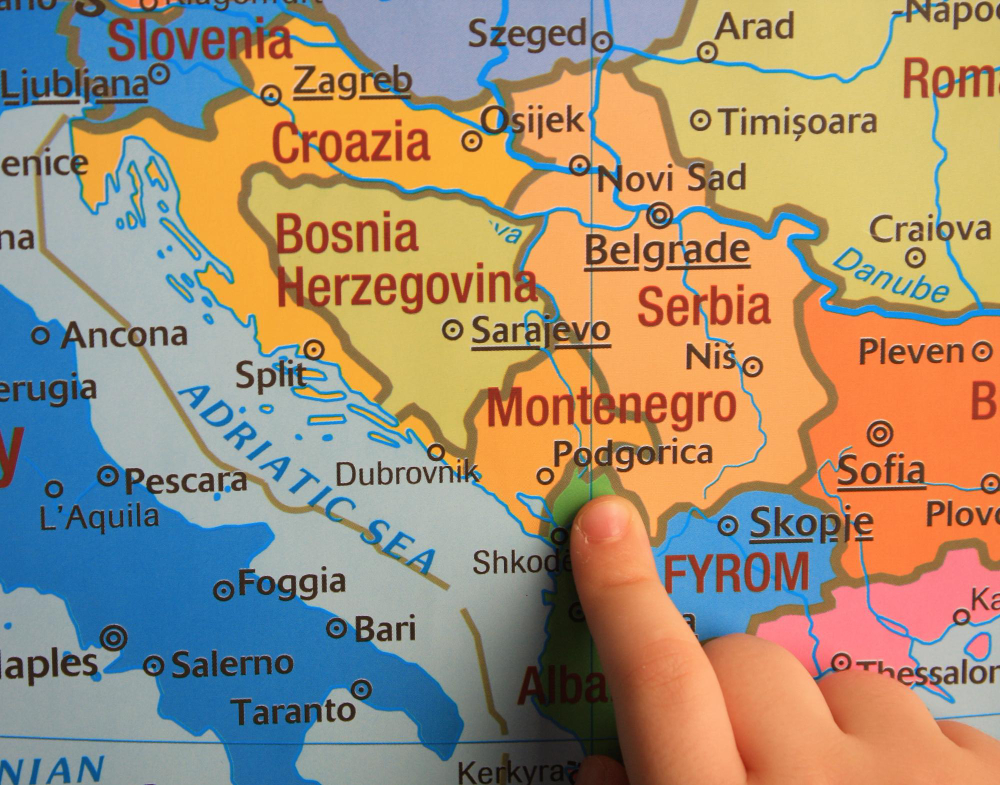The EU enlargement process has stalled since the accession of Croatia in 2013. However, despite a lack of progress toward securing membership, many enlargement countries have nevertheless participated in several EU policies.
In a recent study, we examine the case of the Western Balkan countries to shed light on this phenomenon. Our findings suggest the EU has repeatedly resorted to what we term “external differentiated cooperation” as a strategy in its relations with the Western Balkan states. By shifting the boundaries of enlargement countries’ involvement in its policies, the EU has ensured the operation of its system of regional integration at a time when it has faced a series of crisis-induced shocks.
Shifting boundaries short of membership
The Western Balkan states are all enlargement countries covered by the EU Stabilisation and Association Process and thus are part of the EU system of regional integration. The enlargement process for these states has been derailed by the reluctance of several member states to widen membership of the EU.
Yet these states have not only been repeatedly involved in EU policies but have also participated in EU responses to multiple crises. They cooperated with the EU to boost competitiveness and long-term growth following the EU’s financial and economic crisis. In cooperation with the EU, they also managed migratory flows and addressed the health and socio-economic implications of the COVID-19 pandemic. Indeed, EU actors have repeatedly supported and fostered these countries’ participation in EU policies short of membership.
Our findings suggest that when crises have put the operation of the EU system of regional integration in danger, EU actors have used Western Balkan countries’ integration into EU policies short of membership as a strategy of system maintenance within and across a wide range of policy areas. This process, which we conceptualise as “external differentiated cooperation”, has allowed the EU and the Western Balkan states to address crisis-induced mutual dependences, despite member states’ reluctance to pursue enlargement.
During the migration crisis, there was an increase in the participation of the Western Balkan states in EU related policies. EU actors also raised the possibility of the Western Balkan states participating in freedom, security and justice policies and in economic affairs when shocks had increased mutual dependences in these policy areas.
At other times, however, EU actors have made renewed commitments to full EU membership for these countries to ensure their cooperation. This has occurred when crisis-induced shocks have increased EU dependence on enlargement countries, putting the latter in a position of relative power. The outbreak of the Russian war in Ukraine and bilateral disputes in the Western Balkans are important examples.
What next?
The integration of enlargement countries into EU policies, despite the stalling accession process, is an apparent paradox that is worth investigating. This is all the more so at a time when the European Commission is reflecting on “pre-enlargement policy reviews” to sustain the “gradual integration” of enlargement countries into selected EU policies before their accession. And yet, our knowledge of this phenomenon remains very limited.
The gradual integration of enlargement countries into EU policies could allow the EU to balance the geostrategic need to act swiftly against the need to pursue a merit-based enlargement process built on the Copenhagen accession criteria. This could emerge as a useful strategy given the war in Ukraine, the difficulties enlargement countries have experienced implementing reforms, competition with third actors like Russia and the EU’s reluctance to widen membership are all likely to continue to delay the enlargement process.
About the authors:
Maria Giulia Amadio Viceré is an Assistant Professor at LUISS University’s Department of Political Science. She is also a Visiting Fellow in the Robert Schuman Centre for Advanced Studies at the European University Institute.
Matteo Bonomi is a Senior Fellow at Istituto Affari Internazionali in Rome.

